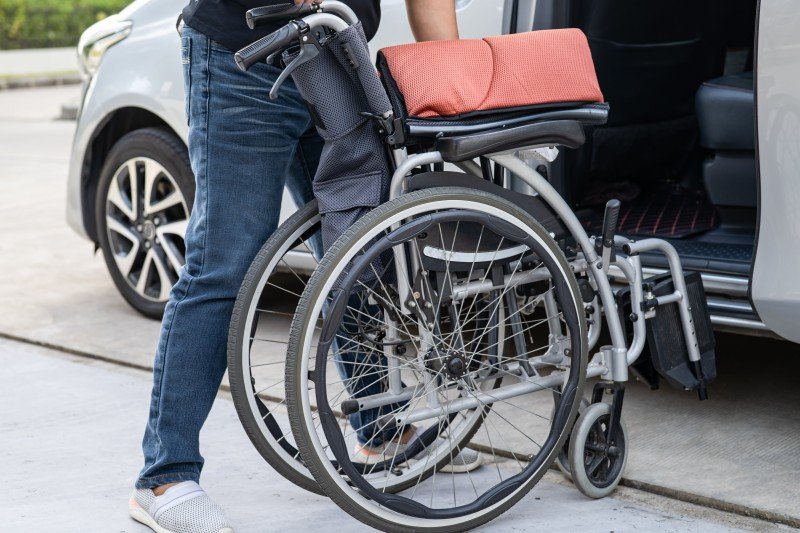Exploring Disability Scooters for Sale Near Me: A Comprehensive Guide
In the modern-day world, mobility help have become increasingly sophisticated and accessible, enhancing the lifestyle for people with specials needs. Among these aids, disability scooters stand apart as a versatile and effective solution, providing liberty and self-reliance to those who may find conventional strolling aids restricting. This post explores the world of disability scooters, exploring how they work, the advantages they supply, and where to discover them for sale near you.

What Are Disability Scooters?
Disability scooters, likewise understood as mobility scooters or electric scooters, are motorized cars designed to help individuals with Mobility Scooters For Sale Near Me (Www.Aprilburton.Top) problems. These scooters are normally equipped with a seat, handlebars for steering, and a variety of functions that enhance comfort and safety. They are powered by rechargeable batteries and can be used both indoors and outdoors, depending upon the model.
Types of Disability Scooters
Three-Wheeled Scooters
- Pros: More maneuverable in tight spaces, lighter and frequently easier to carry.
- Cons: Less steady on uneven surface areas, might feel less safe for some users.
Four-Wheeled Scooters
- Pros: Greater stability and balance, much better for outdoor use, especially on rough terrain.
- Cons: Less maneuverable in tight areas, normally much heavier and harder to transfer.
Travel Scooters
- Pros: Designed for easy disassembly, making them ideal for travel.
- Cons: May have a shorter variety and lower speed compared to full-sized models.
Sturdy Scooters
- Pros: Built to support greater weight capabilities, typically more resilient and strong.
- Cons: Heavier and less portable, might require more upkeep.
Standing Scooters
- Pros: Provide an alternative for users who prefer or need to stand.
- Cons: Less typical, may not be as comfy for long-term use.
Advantages of Disability Scooters
Enhanced Mobility
- Disability scooters allow users to take a trip longer ranges and browse numerous environments with ease, from grocery stores to outdoor parks.
Increased Independence
- By lowering the requirement for assistance, these scooters empower users to preserve their self-reliance and carry out day-to-day activities more conveniently.
Enhanced Quality of Life
- Scooters can significantly enhance social and leisure activities, enabling users to take part in community events and preserve a more active lifestyle.
Cost-efficient
- Compared to other mobility aids like power wheelchairs, scooters are frequently more affordable and have lower maintenance expenses.
Personalized
- Lots of scooters included alternatives for modification, including adjustable seats, speed settings, and extra safety functions.
Where to Find Disability Scooters for Sale Near Me
When looking for disability scooters for sale, there are numerous alternatives offered to guarantee you find the best suitable for your needs.
Local Mobility Aid Stores
- Pros: Opportunity to check drive and see the scooters personally, experienced personnel for customized suggestions.
- Cons: Limited selection compared to online stores, might be more pricey due to overhead expenses.
Online Retailers
- Pros: Wide range of designs and brand names, often more competitive rates, convenience of shopping from home.
- Cons: Can not check drive before purchasing, possible shipping expenses and delays.
Specialized Dealers
- Pros: Specialized in mobility aids, often use extended guarantees and funding alternatives.
- Cons: May be more expensive, fewer physical areas.
Second-Hand Markets
- Pros: Affordable choices, opportunity to inspect and test the scooter before buying.
- Cons: Limited service warranty, may need upkeep or repairs.
What to Consider When Buying a Disability Scooter
User Needs and Abilities
- Physical Condition: Consider the user's strength, mastery, and stability.
- Way of life: Think about where the scooter will be used most often (indoors, outdoors, both).
Scooter Features
- Range and Battery Life: Ensure the scooter can deal with the distances you require to travel.
- Speed and Maneuverability: Choose a scooter that matches your speed preferences and the spaces you navigate.
- Weight Capacity: Verify that the scooter can support the user's weight.
- Storage and Transport: If you need to transfer the scooter, look for designs that are lightweight or simple to take apart.
Safety and Comfort
- Braking System: Check for trustworthy and responsive brakes.
- Seating: Opt for a comfy and adjustable seat.
- Lighting and Accessories: Consider functions like headlights, turn signals, and baskets for added benefit.
Budget plan and Financing
- Preliminary Cost: Compare prices from different merchants.
- Upkeep Costs: Factor in the expense of batteries, repair work, and routine upkeep.
- Funding Options: Some dealers provide funding or lease-to-own programs.
Service warranty and Support
- Service warranty: Look for a comprehensive service warranty that covers both parts and labor.
- Consumer Support: Ensure the retailer provides trusted consumer service and support.
FAQs About Disability Scooters
Q: Are disability scooters covered by insurance?
- A: Many insurance plan, consisting of Medicare, can cover a portion of the cost of a disability scooter. However, protection varies, so it's important to examine with your supplier for specific information and requirements.
Q: How typically do I need to charge the battery?
- A: The frequency of battery charging depends upon the model and use. Generally, you should charge the battery after each usage or at least as soon as a week if the scooter is not used day-to-day.
Q: Can I utilize a disability scooter on public transport?
- A: Yes, many disability scooters are designed to be portable and can be utilized on public transport, such as buses and trains. Nevertheless, it's a good concept to check the specific guidelines and policies of your local transit authority.
Q: Are there any age constraints for using disability scooters?
- A: There are no rigorous age constraints, however users must have the ability to operate the scooter safely. Numerous scooters are designed for older grownups, however they can be used by anybody who requires support with mobility.
Q: Can I modify a disability scooter to fit my particular needs?
- A: Many scooters provide customization options, such as adjustable seats and speed settings. For more extensive modifications, it's best to seek advice from with an expert mobility aid company.
Tips for Buying a Disability Scooter
Research study Thoroughly
- Check out Reviews: Look for evaluations from other users to get a sense of the scooter's performance and reliability.
- Compare Models: Consider various designs and brand names to find the one that best satisfies your needs.
Test Drive Before Buying
- If possible, test drive the scooter to ensure it feels comfy and fulfills your requirements.
Request Professional Advice
- Seek advice from with a health care provider or mobility aid expert to get tailored recommendations.
Look For Local Incentives
- Some city governments and organizations use incentives or subsidies for buying disability scooters. Check with your regional disability services to find out more.
Think About Future Needs

- Think of any potential changes in your physical condition that might affect your scooter needs in the future.
Disability scooters are an important tool for improving mobility and self-reliance for people with specials needs. By considering the user's requirements, the functions of the scooter, and the readily available choices for purchase, you can find the perfect scooter to fit your lifestyle. Whether you're patronizing a local store or searching online, taking the time to research and test drive different models will ensure you make a notified and helpful decision. With the right scooter, the world ends up being a more available and pleasurable place.
Extra Resources
- Mobility Aid Providers: Check local listings for providers focusing on disability scooters.
- Online Reviews: Websites like Consumer Reports and mobility help online forums provide in-depth reviews and user feedback.
- Federal government Programs: Look into regional and nationwide programs that provide financial help for mobility help.
By exploring these resources and following the tips described in this post, you can with confidence find and buy a disability scooter that meets your specific requirements and boosts your every day life.







